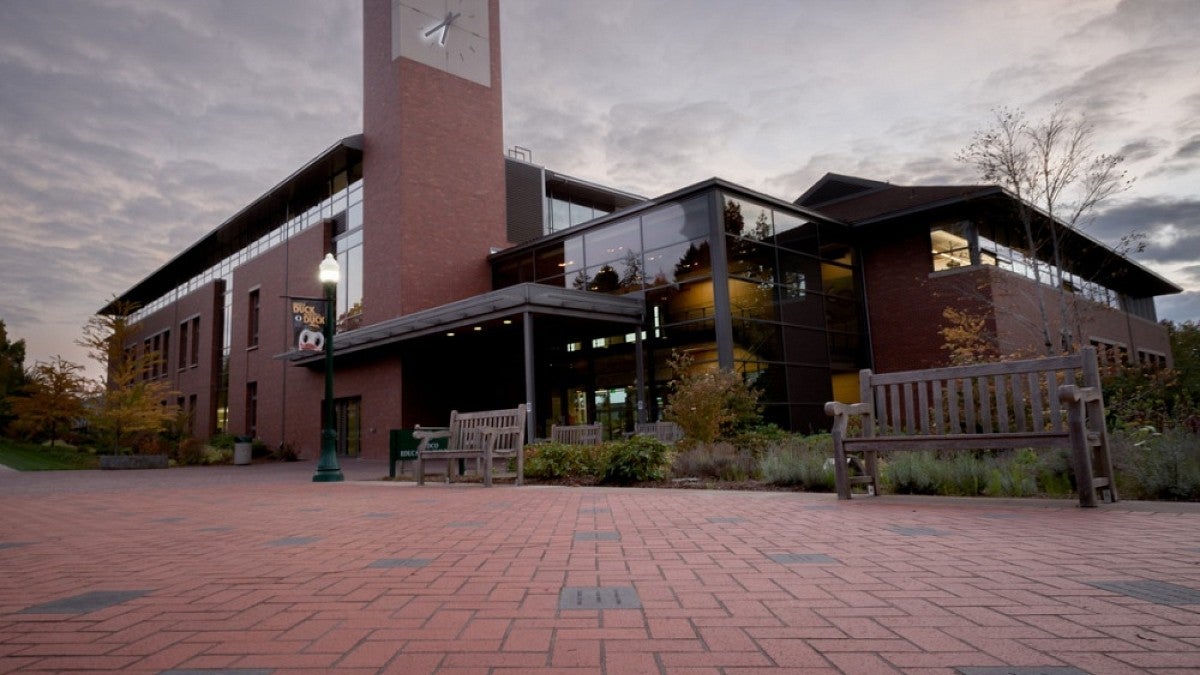Developing a new minor is a major project, and the new Leadership + Administrative Skills undergraduate minor was years in the making.
The minor, known as LEADS, was developed by the Department of Educational Methodology, Policy and Leadership in the UO College of Education. Coordinators carefully extracted elements from the department’s master’s and doctoral programs in educational leadership and combined them with foundational blocks for undergraduates. They had discussions with departments across the university, with different ideas injected into the mix.
The goal of the minor is to prepare students for leadership roles in areas such as education, social change and public interests. It filtered through department and university approval processes over the course of a decade and came to life this term with its first class, Exploring Leadership.
“There’s a very unique set of ingredients that we have in this program that are really different than the other ones that we’ve seen out there,” said Charles Martinez, head of the educational methodology department. “I think it’s because we think of this not as a person or a position or a role as a leader, we think of this as a skill set that we all use when we’re navigating systems, that we can all develop.”
The minor is open to all majors and offers courses on topics such as program evaluation, change and leadership, and equity leadership. It prepares students in data-based decision-making, leading groups and processes, employing data analytics and methodologies, incorporating multiple perspectives, evaluating programs and promoting equitable outcomes.
Kathleen Scalise, an associate professor in the department, is teaching the first Exploring Leadership class.
“We’re going to look at the major leadership models and approaches that are out there in the field. So we’ll discuss that and some of the strengths and weaknesses and applications of different types of approaches,” she said. “Then we’ll land on a model and populate it with the kinds of things that we teach our graduate students.”
The class is a prerequisite for the minor’s other five courses, which can be taken in any order. The minor also offers a four-plus-two option, which lets students to take four or five of the minor’s courses and replace the other one or two with approved courses from other departments.
Scalise said the four-plus-two option opens up opportunities for partnerships. Students could receive funding from outside sources for leadership projects that would also count as credit towards the minor.
“We’re very interested in building partnerships to provide more experiential leadership opportunities to students,” she said.
The program needed a minimum of 12 students in its first class and reached 27 during the first week of registration. Though the minor is designed to prepare students for leadership roles in educational and social service organizations, the enrolled students have come from departments such as journalism; business; planning, public policy and management; and biochemistry, as well as from the College of Education.
“Students want to see how it connects with their fields of study, and I think that’ll play out when they first see the class and how it works,” Scalise said. “The reason we wanted a minor and not a major is because we’re seeing it as adding to whatever a student’s substantive focus is in their major. We want to work on identifying their identities as leaders and work on some skill building around where they see themselves as leaders but then intersect that with their own goals of where they’re going in their fields.”
Martinez said they wanted the minor to reflect the department’s work in a unique way.
“Our identity as a department is really about how to use evidence and research to really change systems and practices in the field,” he said. “Leaders like to talk about change. Anytime a new leader comes into a place or an organization all they want to do is talk about change, but what we’re trying to do is say that leading change is actually a very specific set of skills.”
—By Sarah Eddy, University Communications


